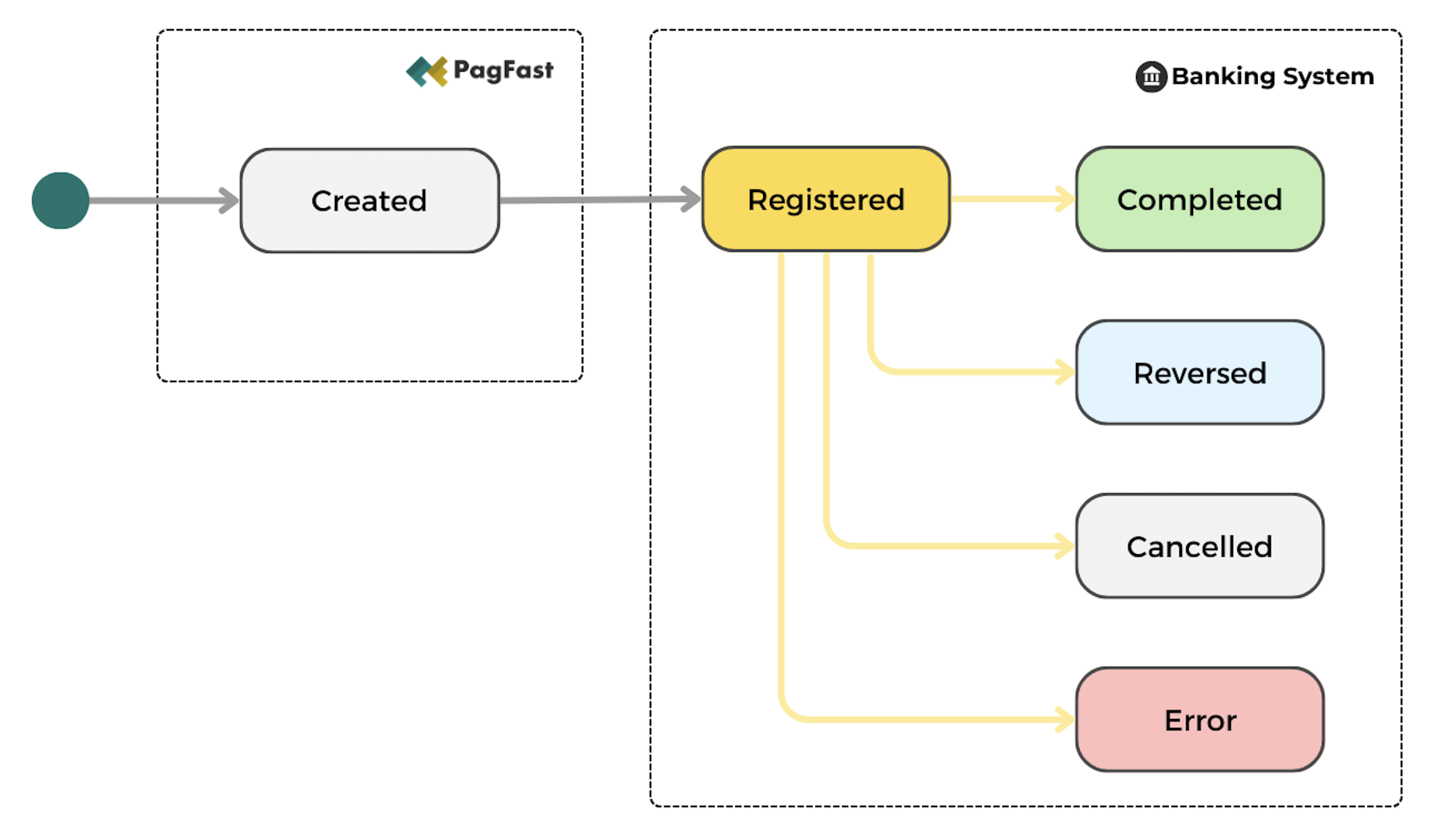Transaction Lifecycle
Our platform tracks the status of every transaction. The states can be Intermediary (Created, Registered), indicating an ongoing progress of the transaction, while the final states (Completed, Reversed, Cancelled and Error) mark the conclusive outcome of the transaction process.
Here's a breakdown of each transaction state and the participants reponsible for processing them.

Intermediate States
- Created: The transaction request has been received by the platform, and it is in the initial stage.
- Registered: The transaction has been successfully registered with the banking system and is awaiting for the user payment.
Final States
- Completed: The payment for the transaction has been successfully executed.
- Reversed: The transaction has been completely reversed.
- Cancelled: The transaction has been canceled before payment is completed.
- Error: An error has occurred during the transaction processing.
Throughout the transaction lifecycle, the main state transitions, such as Registered, and to processed states, generates asynchronous events automatically sent via webhook. These webhook events enable real-time updates and notifications about the progress of your transactions.
By leveraging webhooks, you can seamlessly integrate this information into your systems and ensure that you stay up-to-date with current transaction status.
Note about RefundsTransaction refunds might be applicable both for Cash Ins or Cash Outs.
- Cash in refunds are automatically applied when a transaction is rejected by any reason. In this case, the transaction just figures to the integrator as Error, and no action from the integrator is required.
- Cash out refunds happens when the end-user receives a payment and asks for a bank refund, expecting to receive credit in the merchant wallet. In these cases, for the integrator the origin transaction will figure as Completed, and no additional action is required.
PagFast will proceed with the devolution.
Updated 30 days ago
